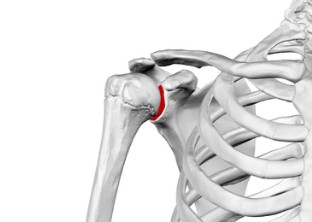I hurt my shoulder swimming (yes, you can get hurt swimming). Apparently I have a labrum abrasions (see picture) causing me to have painful movement, too painful to swim. Surgery on my shoulder is an option but may be unnecessary. So physical therapy has been my course of action and as I’ve learned it’s not my shoulder joint that needs to be fixed, rather it’s the small, little known muscle system around the shoulder that were too weak all along. This weakness caused me to alter my swim stroke and thus damage my shoulder. So of course this got me to thinking…
fixed, rather it’s the small, little known muscle system around the shoulder that were too weak all along. This weakness caused me to alter my swim stroke and thus damage my shoulder. So of course this got me to thinking…
Approaches to performance improvement efforts are similarly surgical in nature. We directly attack the problem itself. But when the performance issue is say less tangible, like improving organization communication (collaboration, cooperation, openness, or transparency), we initially target individual or group behaviors and begin working on the people directly.
Typically it goes like this:
– We need to be more agile, adaptable, innovative…
– We need to collaborate more, open up and be more transparent
– Let’s buy Yammer… or Slack… or Jive. Or
– Let’s “create” a CoP so people will talk and share and innovate more… or
– Let’s revisit our knowledge management approach… or
– Let’s have the c-suite blog more… or
This approach is a mistake. At worst it is an expensive, morale killing failure and at best it is so slow it stumbles on for months or years with weak support.
Communication, collaboration, cooperation, etc. in the organization, like my shoulder, are really supported by little, unseen systems:
– Who gets to talk to whom and when?
– What gets rewarded and recognized?
– Is management leadership or overseer?
Just think, if I have surgery on my shoulder but return to swimming with the same underdeveloped system (muscles) that supports the movement (shoulder), it remains weak and I will eventually fail again.
Similarly, if we just implement a new technology or target individual/group behavior change and the system that supports the new behavior remains unchanged (weak) the new behavior too will eventually fail again.
Address the system which will alter the behavior and change the culture.

